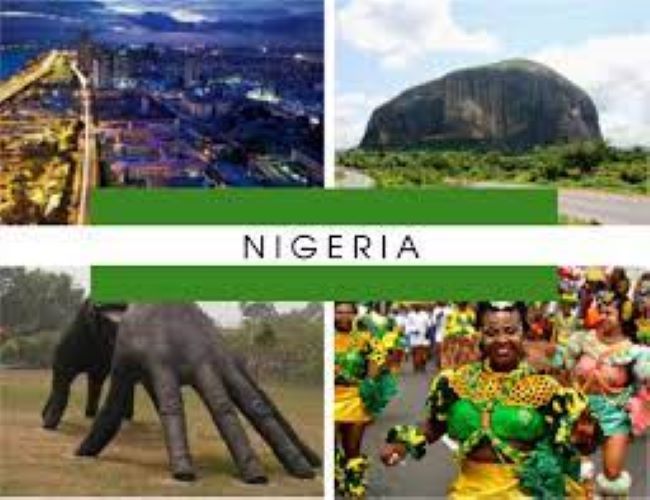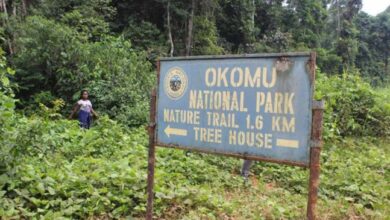Exploring Nigeria’s tourism potential for economic diversification
 By Chinenye Offor
By Chinenye Offor
Nigeria is home to diverse ethnic groups with beautiful landscapes, tourist sites and distinctive cultural heritages.
Given its abundant beautiful scenery and various cultural heritage, which are even found among tourism-leading countries such as Brazil and Caribbean nations, and its wildlife, Nigeria should be the preferred tourism destination of international tourists.
But this is not the case.
The situation is so bad that even Nigerians ignore tourism sites at home and hit the skies for other countries whose natural endowments are far below that of their fatherland as they search for leisure.
The reasons for this obsession with other seeking pleasure abroad may not be unconnected with some challenges that have made the sector unattractive in Nigeria.
While Nigeria can boast of abundance of tourism sites, the sad commentary is that most of them are moribund as a result of the already highlighted local tourism apathy and under-funding of the sector.
If Nigeria is committed to tapping into the gains of the sector, there is a need for a strong policy framework, aggressive marketing of the sector as well as escalate collaboration between the public and private sectors.
Tourism is one of the biggest contributors to the global economy. The industry directly contributes about 3.6 percent of the global Gross Domestic Product (GDP) and indirectly contributes about 10.3 percent.
In Nigeria, the contribution of the tourism industry has been estimated at around 1.8 billion dollars, which demonstrates the gulf between the present reality and the potential of the sector.
This figure may look huge but it pales into insignificance when compared to Kenya, a smaller country with less natural endowment but well-managed tourism industry
According to a Reuters report, Kenya’s tourism industry urged 83 percent in 2022 to 268 billion shillings, approximately $2.13 billion as COVID-19 curbs eased.
In Egypt, according to International Monetary Fund (IMF), the tourism industry employed 10 percent of the population and contributed to about 12 percent of GDP pre-COVID-19 pandemic.
Over time, analysts have stressed the need for increased public-private partnership to ensure that the sector attracts Foreign Direct Investment, enhance job creation and improve the state of infrastructure in the country.
To ensure that this is realised, the Federation of Tourism Association of Nigeria (FTAN) said it is working to ensure that the right policies and laws which would drive the growth of the industry are put in place.
The body is at the forefront of revitalising the industry to expand its competitiveness.
Furthermore, one of the goals of the body is to ensure that investors are able to tap into the enormous potential of the industry such as transportation, wildlife conservation, health and wellness, leisure and recreation.
Stakeholders observe that tourist sites such as the Mambilla Plateau in Taraba, Obudu Mountain Resort in Cross River and Yankari Game Reserve in Bauchi could be developed to world standard.
FTAN is a report said it believes that there should also be a consolidation of successes recorded in flagship tourist events such as the month-long Calabar Carnival, which now attracts up to 50,000 visitors annually.
It also said that such consolidation can only be achieved by training professionals like tour guides, hotel and resort managers, caterers, chauffeur drivers, porters and security personnel.
Mr Folorunsho Coker, Director-General of the Nigerian Tourism Development Authority (NTDA), said it was unfortunate that tourism has continued to be relegated to the background in the scheme of things in Nigeria.
“Tourism generates 7.6 trillion dollars annually in the world. Africa sees about five percent. We are the most populous and wealthiest country in Africa.
“I know that out of the five percent, Nigeria sees N1.8 billion only. We have the population and diversity that create unique art.
“We have everything in abundance, yet Nigeria seems to be poor in tourism,” Coker said.
He said that revamping the existing tourist sites was key, adding that efforts were in place to promote tourism through collaborative initiatives with stakeholders in the sector.
Coker, who emphasised the role tourism plays in any nation’s economy, said that the tourism industry generally was assuming increased importance.
“This is because of its many facets which serve as tools for economic recovery, diversification and development,” the media quoted Coker as saying.
The NTDA boss further called on stakeholders in the hospitality, transport, entertainment, and tourism sectors to synergise and produce a single tourism value-chain product that would make the sector to thrive.
However, stakeholders believe that nothing would change if basic prerequisites are not put in place.
A tourism expert, Mr Emmanuel Steven, said that insecurity, language barrier, poor maintenance culture, and infrastructure deficit are impeding the sector’s growth.
“The issue of insecurity, deplorable road conditions, inadequate access to healthcare services, steady electricity supply, portable water, amongst others should be addressed speedily
“If these challenges are addressed, the sites would attract more tourists,” he said.
Mr James Umoh, a culture and tourism enthusiast, called for the rehabilitation and upgrading of moribund sites.
Umoh said that tourism stimulates economic growth by generating income, employment, investments, and exports, adding that it serves as a catalyst for socio-economic development.
According to him, tourism has been included as a target in goals 8, 12 and 14 of the Sustainable Development Goals.
He said that in countries such as The Gambia, South Africa and Japan achievements in tourism were made possible by the act that established their tourism boards.
He said that Nigeria should take a cue from those countries by domesticating the 2002 Cape Town Declaration on Responsible Tourism.
“This will enhance best practices of responsible tourism principles and help to promote tourism opportunities abundant in the country,” he said.
Also, Mr Moshood Adediran, a member of Professional Creative Artists and Designers in Nigeria, said the tourism sector, if properly explored, would serve as a tool for cushioning the effects of post-pandemic economic slowdown.
According to WorldData, Nigeria generated around $321.00 million in the tourism sector in 2020.
It sounds impressive until the data is further interrogated. Thus, with 0.025 tourists per resident, Nigeria ranked 164th in the world and 8th in West Africa.
Stakeholders say government at national and subnational levels should begin to view the sector as a lifeline and invest in it through partnerships. (NANFeatures)
News Agency of Nigeria












